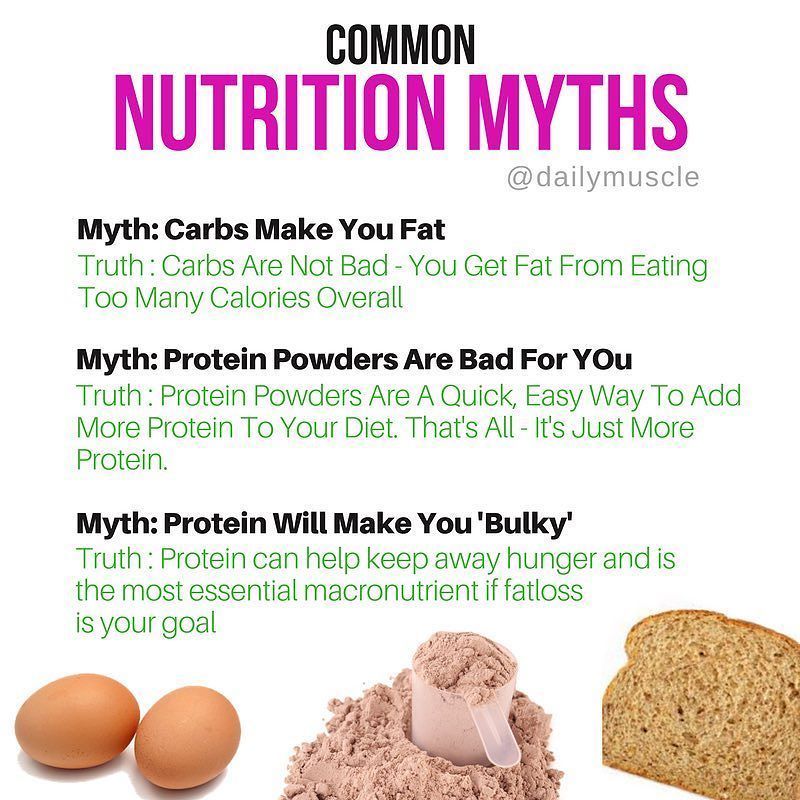In today’s digital age, information about nutrition is readily available at our fingertips. However, not all that glitters is gold, and when it comes to nutrition, there are numerous myths and misconceptions that can cloud our judgment. In this article, we aim to debunk some of the most common misunderstandings about nutrition by presenting you with facts backed by scientific evidence. Let’s dive in and separate fact from fiction.
Myth 1: Carbs are the enemy and should be avoided
Fact: Carbohydrates are a vital source of energy for our bodies. While it’s true that consuming excessive refined carbs can lead to weight gain, not all carbs are created equal. Complex carbohydrates, found in whole grains, fruits, and vegetables, are crucial for overall health. They provide essential nutrients, fiber, and slower energy release, keeping you satiated for longer periods and supporting digestion.
Myth 2: Fat makes you fat
Fact: Fat is a crucial macronutrient required for optimal bodily functions. The key lies in understanding the difference between good and bad fats. Trans fats and saturated fats found in processed and fried foods can indeed increase the risk of heart disease and obesity. However, consuming healthy fats, such as those present in avocados, nuts, and olive oil, can actually promote heart health, brain function, and weight management.
Myth 3: All calories are created equal
Fact: While calorie intake plays a role in weight management, not all calories are equal in terms of nutritional value. Consuming 200 calories from a sugary snack is vastly different from consuming 200 calories from nutrient-dense foods like lean proteins, vegetables, and whole grains. Focusing on the quality of calories rather than just the quantity is vital for overall health and well-being.
Myth 4: Eating frequent small meals boosts metabolism
Fact: The idea that eating multiple small meals throughout the day boosts metabolism and aids weight loss has been widely perpetuated. However, scientific studies have shown no significant difference in metabolic rate between those who eat multiple small meals and those who consume fewer larger meals. What matters most is finding an eating pattern that works for your body and maintaining a calorie deficit for weight loss.
Myth 5: Supplements can replace a healthy diet
Fact: While supplements can be beneficial for individuals with specific nutrient deficiencies, they cannot replace a healthy and balanced diet. Whole foods offer a wide range of essential nutrients, fiber, and phytochemicals that work synergistically to support our overall health. It’s important to focus on nourishing our bodies with real, whole foods rather than relying solely on supplements.
Myth 6: Detox diets rid your body of toxins
Fact: The concept of detox diets or juice cleanses promising to rid your body of toxins is a popular one but lacks scientific evidence. Our bodies have built-in detoxification systems, such as the liver and kidneys, that efficiently eliminate toxins naturally. Instead of relying on fad diets, it’s essential to adopt healthy eating habits that include a variety of fruits, vegetables, whole grains, lean proteins, and plenty of water.
Myth 7: Drinking eight glasses of water a day is a must
Fact: While staying hydrated is crucial for our overall well-being, the “eight glasses a day” rule is a general guideline, not an absolute requirement. Our water needs vary depending on several factors such as age, activity level, climate, and overall health. Listening to your body’s thirst signals and staying adequately hydrated is more important than obsessing over an arbitrary number of glasses.
Myth 8: Going gluten-free is healthier for everyone
Fact: Unless you have celiac disease or non-celiac gluten sensitivity, there is no scientific evidence to support the notion that a gluten-free diet is healthier. In fact, gluten-containing whole grains like wheat provide essential nutrients and fiber. Eliminating gluten from your diet without proper medical guidance may lead to nutrient deficiencies. It’s important to consult a healthcare professional before making any significant dietary changes.
In conclusion, the world of nutrition is filled with misleading information and various common misconceptions. By debunking these myths and presenting the facts supported by scientific evidence, we hope to empower individuals to make informed decisions about their dietary choices. Remember, it’s essential to consult healthcare professionals or registered dietitians for personalized advice tailored to your specific needs. Nourish your body with a balanced, varied, and mindful approach to nutrition, and you’ll pave the way to a healthier lifestyle.
